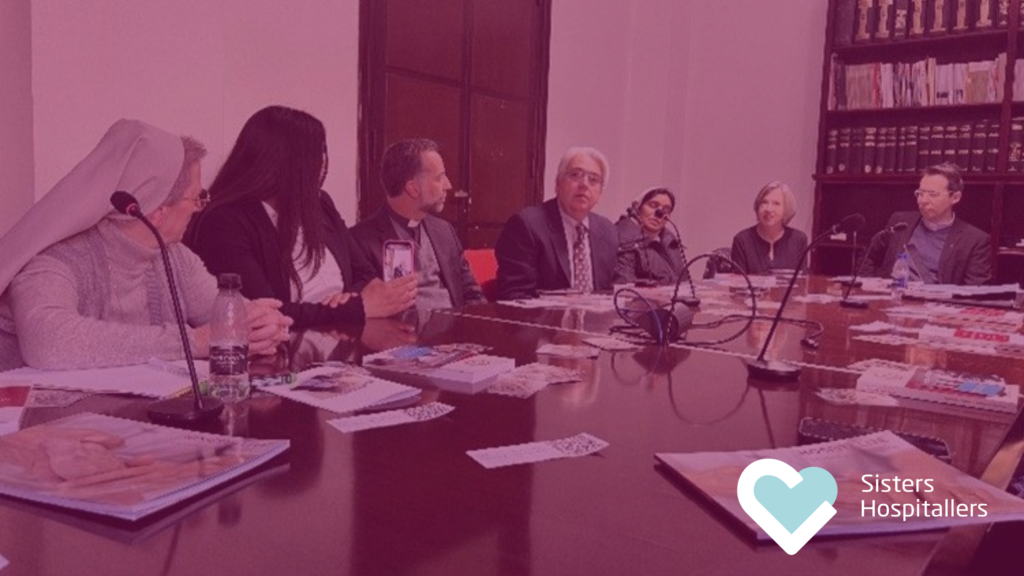
Last Monday, the first-ever Vatican conference on mental health took place at the Vatican’s media headquarters, Palazzo Pio. This important event brought together leading figures from the Catholic world committed to addressing the growing global mental health issue. Participants included Vatican officials, members of Deacon Shoener’s Association of Catholic Mental Health Ministers (based in the United States), and representing our Congregation, Sister Isabel Canton, along with other activists working on the front lines in Moldova, India, South Africa and elsewhere.
The conference was a testament to the Catholic Church’s commitment to addressing mental health concerns, a priority driven by the Dicastery for the Promotion of Integral Human Development, which has been in conversation with local Churches around the world to address this growing challenge.
In this context, Sister Isabel Cantón shared her experience of more than 50 years in the field of Mental Health in the UK. She highlighted the challenges facing the congregation today, such as the decline in the number of priests and religious sisters, the need to adapt spiritual care to a diverse context and the shortage of trained pastoral workers.
She started her presentation by quoting the words of the prophet Isaiah “He has sent me to bring the good news to the poor, to bind up the brokenhearted” (Is 61,1) and said how we are all called to continue the mission of the Messiah in the world of mental illness.
The sister stressed the difficulties that her congregation faces today: fewer priests and sisters, the need to adapt the spiritual care they offer to a context where not all residents are Catholic, and the lack of trained pastoral workers. She noted that some centres run by her congregation are now entirely staffed by laypeople, and have no sisters or chaplains. Sr Cantón called for the Church to welcome and listen to those with mental illnesses, welcoming them as “fellow pilgrims.”
When sister Ester, the vicar general called me to take part in the international meeting in the Vatican and explain what is was, without thinking too much, I said yes. Later when I realized what was all about, I felt very inadequate to do this kind of work. But immediately I put all my trust in the Lord and started to work on the matter.
With the sisters in the community we started to think of what difficulties and challenges we find in our daily activity caring for people who suffer from mental illness. Sister Ester send a summary on this matter at a congregational level.
With all this material, I prepared my intervention. I went to Rome on Sunday, 28. The sisters in our general house in Rome, gave me a very worm welcome which made me fill at home.
On 29th, sister Belinda, the superior of the community accompanied me to the Vatican. I was very warmly welcomed by Andrea Sarubbi, a Vatican journalist who introduced me to the members of the panel.
I felt good all the time. When my time came I did my presentation in a PowerPoint that sister Blanca from the general council helped me prepared. As I was given plenty time, I was able to speak at length of the life and work that our Congregation does all around the world.
At the end, members of the panel, they all asked me for more information on the work we do. I gave them some books that Sr Blanca gave me on the mission of the congregation and put them in contact with our general office as they would like to work in conjunction with us in this field of mental health.
It was a very good experience. I thank God for his help and all those who supported me in many ways.
Sister Isabel Canton